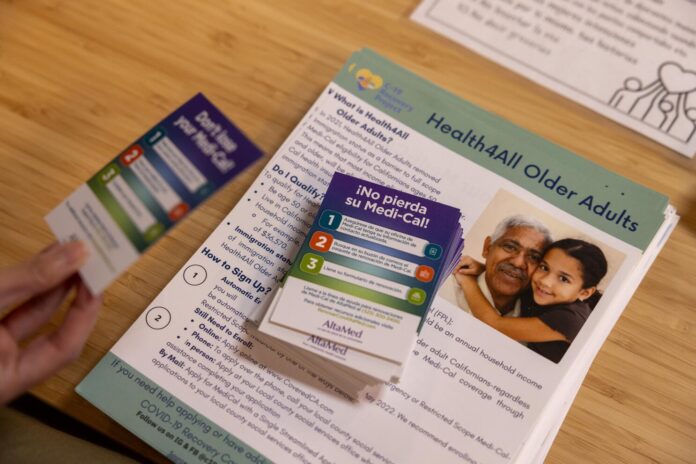
Vidya Sethuraman
India Post News Service
A year ago, California’s Department of Health Care Services (DHCS) launched a federally mandated annual initiative to redetermine Medicaid eligibility (called Medi-Cal in California). With one out of three residents on Medi-Cal, the state’s goal has been to keep as many people enrolled as possible at a time when many other states were using “the great unwinding” to purge their Medicaid lists.
At the EMS briefing on April 16, DHCS experts shared the data on how redetermination has impacted Medi-Cal enrollment numbers, and plans for Medi-Cal moving forward. The director of one health clinic in LA County, which has the most Medi-Cal enrollees in California, discussed its ongoing efforts to assist eligible recipients to stay on Medi-Cal and re-enroll if they were dropped.
Yingjia Huang, Assistant Deputy Director, Health Care Benefits and Eligibility (HCBE), California Department of Health Care Services introduced the latest data on white card registration. She said that after the epidemic, the white card qualification review resumed once a year. In April last year, DHCS officially started the first white card qualification review after the epidemic, and is committed to helping people maintain their white card qualifications.
She said that as of November last year, about 21% of people in California had lost their white card qualifications. Since then, the number of white card registrants has increased every month. So far, the proportion of people who have lost their white card qualifications has dropped to 9%.
The agency helps people complete the process of updating information by publishing guidance videos and articles. In January this year, DHCS also helped 70,000 people obtain white card qualifications from limited medical services to full medical services. She reminded the public that after the deadline for updating white card information, people still have a 90-day transition period, during which the white card is still valid.
Vilma Champion, Director, Managed Care and Enrollment, Northeast Valley Health Corporation (NEVHC) introduced how it helped people update their personal information and maintain their white card qualifications in the past year. She said that the biggest challenge is people living in remote villages. They do not have computers and other equipment, and it is easy to delay updating data.
Fitzgerald Graves, Medi-Cal enrollee, African American Network of Kern County, told how after his daughter became pregnant, he wanted to register as a white card member, but was delayed in applying for a white card for various reasons.
He eventually sought medical treatment at a rogue clinic, but his daughter lost her child due to the doctor’s misdiagnosis. When it comes to the white card registration process, Fitzgerald Graves said that filling in information online is complicated, and he has provided this information to DHCS. He hopes that the white card registration and renewal procedures can be simplified to make it more convenient for the public.






